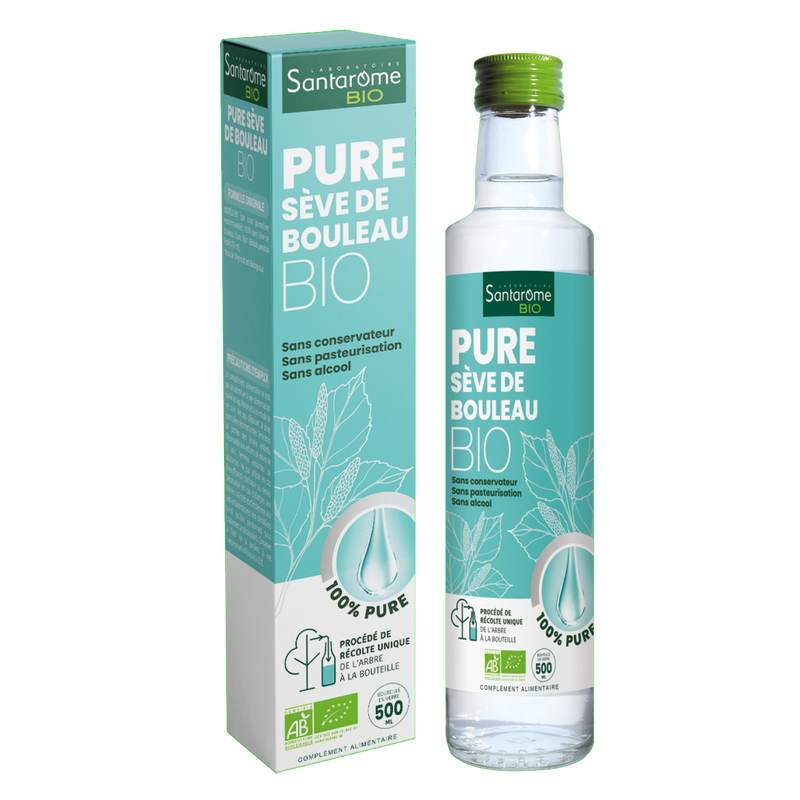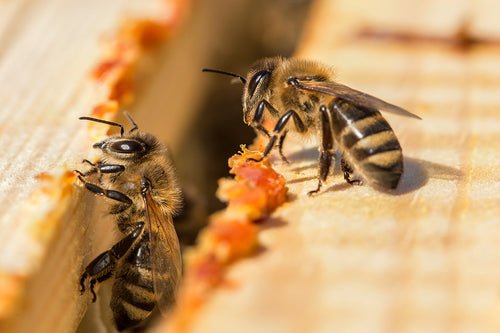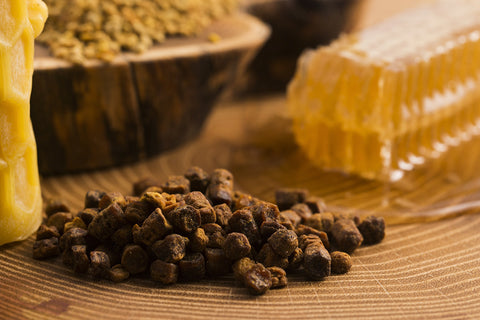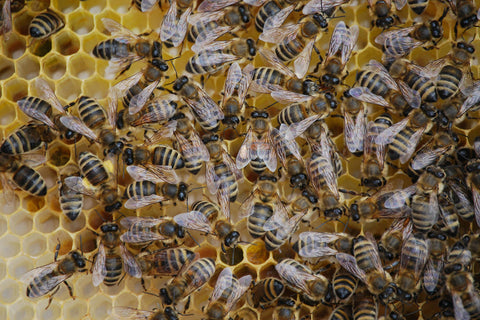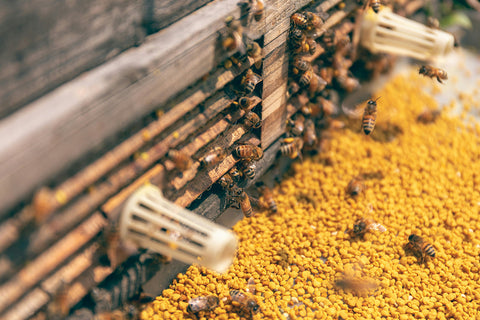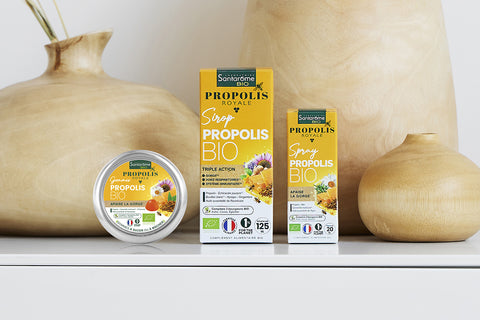What is propolis?
Propolis is a natural, viscous, sticky substance secreted by bees on the buds, bark, and leaves of certain plants.
Its name comes from the Greek "pro" (before) and "polis" (city), literally meaning "before the city," or "protection of the hive." Used to protect the entrance to the hive from microbes, this plant resin acts as a natural barrier.
Within the hive, propolis has a purifying effect: it helps limit the spread of viruses, bacteria, and fungi, thereby contributing to the hygiene of the colony. Rich in flavonoids, vitamins, minerals, and other active substances, it is considered a valuable natural remedy, comparable to royal jelly and honey, two other treasures from the hive.
The color of propolis varies depending on its botanical origin: you can find organic green propolis, red propolis, black propolis, and even brown propolis.
What is the difference between brown, green, black, and red propolis?
The color of propolis depends on its botanical origin:
- Brown propolis is the most common type in Europe.
- Green propolis, which comes from Brazil, is particularly rich in antioxidants.
- Black propolis, which is rarer, is harvested in tropical regions.
- Red propolis comes mainly from Latin America and has powerful purifying properties.
